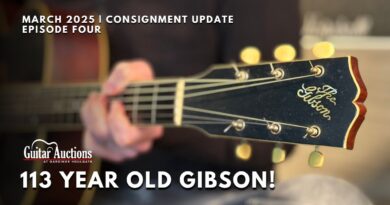Lesson: Classical Guitar Scales – Five Major Scale Patterns over the Entire Guitar Fretboard
Classical guitar scales over the entire guitar, from Major Scales for Classical Guitar (PDF): https://www.thisisclassicalguitar.com/major-scales-for-classical-guitar/
The Five Closed Major Scale Patterns – These patterns represent closed major scale fingerings over the entire guitar fretboard. They are presented in positions starting from the major scale tonic (root) to the highest note, then the lowest note, and returning to the tonic. The diagrams clarify the position pattern. Studying these five patterns will help your fingering comprehension when reading music within a key and help you recognize the scale patterns throughout the entire book. These are moveable scales, therefore, the same fingering and pattern may be used in every key by starting at a different fret. I’ve written the patterns out in both C major and G major to help you recognize the patterns in different keys. All of the scales in this book can be related to these five patterns so a thorough study and memorization is very beneficial.
Major Scales for Classical Guitar (PDF) – Beginner to Intermediate Classical Guitar. PDF download. Includes notation, TAB, fingering, some diagrams, tips, and more. 32 pages. 2019 Edition.
Includes: Common open and closed scale patterns up to four sharps or flats, two octaves (some three octaves), and examples of open string shifts. Also includes the five closed major scale patterns over the entire fretboard. Video lessons for the book and all scales via YouTube.
★ Special thanks to all my Patreon Supporters and especially to:
★ Producers: Mark Cohen, Daniel O’Connor, Marc Garnick, Berian James, Tom Musial, Michael Steede
★ Patrons: Paul Hickey, Nancy Malven, Derrick Mickle, Art Peterson, George Rowan, Adam Trosterman
► WEBSITE: https://www.thisisclassicalguitar.com
► SUPPORT: https://www.thisisclassicalguitar.com/donate-support/
► LESSONS: https://www.thisisclassicalguitar.com/lessons/
► FREE SHEET MUSIC & TAB: https://wernerguitareditions.com/pages/sheet-music-tab-classical-guitar-free-pdf
► GEAR, STRINGS: https://www.thisisclassicalguitar.com/classical-guitar-store-reviews/
► MY AMAZON: https://www.amazon.com/shop/thisisclassicalguitar
Thanks for watching!
#guitar #classicalguitar #classicalguitarlesson
#Lesson #Classical #Guitar #Scales #Major #Scale #Patterns #Entire #Guitar #Fretboard
Originally posted by UCzBE550674K82Qfz7GQ_djA at https://www.youtube.com/watch?v=Xs-NUHMMhVc




How do you practice scale in 12 keys?
I have played almost exclusively Segovia scales. I know about the patterns, maybe I should mix things up a bit.
Thank You.
Thank you very much, Bradford. I just bought my first classical guitar and have been watching your video to learn. It has been very helpful and I am planning on buying your other books once I finish the method book vol 1.
I have one question. I am not sure if I got this wrong, but I feel there is much less emphasis on the scale practice for the beginner in classical guitar. I have been helping my son's cello practice for the last 6 years and the scale (and arpeggio after the first year) has been always his daily routine as soon as he started practicing with his bow after couple of weeks of pizzicato only practice to set up the posture and very simple notes for kid/beginner. I don't see that from classical guitar. My wife has been playing piano for years and she also emphasizes the importance of scale and arpeggio from the beginning. I am assuming scale and arpeggio are about music and not specific to an instrument so I am wondering if there is a reason for classical guitar seems to be a bit different, unless my observation is incorrect. BTW, I am absolute beginner with no prior music training what-so-ever (other than attending the cello lessons with my son) so my observation could be absolutely wrong.
Thanks!
I don't understand these two concepts: the highest and the lowest notes on any scale? Let us suppose that we took the C major scale in which we ought to find both the highest and the lowest notes on the pattern we will play? What are these notes, and how to find them?
Thank you
Do the calluses from steel string acoustic guitars make it harder to fret on a classical guitar?
Even slowed down at min rate I can't tell which fingers are pressing which strings. I will have to try and go through the book. This is why I don't know if online learning works on guitar?
Do you have hard copy of this book ?
Bradford I'm a bit confused … I'm using a book 'The Segovia Scales' (by Sean Thrower) and he, Segovia, has 24 major and minor scales from the Circle of Fifths which he then plays with 8 patterns. How does what you have here 'fit' with Segovia's work?
Thanks in advance.
This has been so much help for me thankyou
Thank you for teach me the scale and to hard and now i can play scale i sub you channel and like
puede dar clases o cursos en español?
1st scale 1:15
2nd scale 3:50
3rd scale 4:54
4th scale 6:20
5th scale 7:30
To everyone, these scale lessons can also be applied to those who want to learn to play Jazz. Jazz guitar uses these same scales. Master these and you can apply it to jazz.
Nice lesson Bradford
Do you see the related minor key too? With practice.
GREAT THX
Great video,
That would be awesome if you could also show the right hand and where each finger should sit
thanks
So if I play the first position and start and end on a G note, It's a G major scale? And if I start and end on a D note, It's a D major scale? So basically what I'm asking is that, Can you play all the notes of a particular pattern say in 1st position or 2nd position or so on If I start and end on a particular note, I'll be playing that key?
Thank you – awesome video and PDF!
Good video – would you recommend to use rest strokes or free strokes for the right hand?
Super helpful. Thanks!